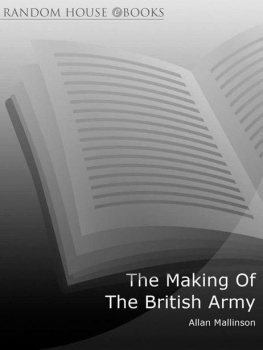Originally published in 1843 as The Military Operations at Cabul, which ended in the Retreat and Destruction of the British Army, January 1842. With a Journal of Imprisonment in Afghanistan
New edition first published in 1976 by Routledge & Kegan Paul
This edition first published in 2020
by Routledge
2 Park Square, Milton Park, Abingdon, Oxon OX14 4RN
and by Routledge
52 Vanderbilt Avenue, New York, NY 10017
Routledge is an imprint of the Taylor & Francis Group, an informa business
Introduction 1976 James Lunt
All rights reserved. No part of this book may be reprinted or reproduced or utilised in any form or by any electronic, mechanical, or other means, now known or hereafter invented, including photocopying and recording, or in any information storage or retrieval system, without permission in writing from the publishers.
Trademark notice: Product or corporate names may be trademarks or registered trademarks, and are used only for identification and explanation without intent to infringe.
British Library Cataloguing in Publication Data
A catalogue record for this book is available from the British Library
ISBN: 978-0-367-14305-3 (Set)
ISBN: 978-0-429-29389-4 (Set) (ebk)
ISBN: 978-0-367-26498-7 (Volume 1) (hbk)
ISBN: 978-0-367-26563-2 (Volume 1) (pbk)
ISBN: 978-0-429-29388-7 (Volume 1) (ebk)
Publishers Note
The publisher has gone to great lengths to ensure the quality of this reprint but points out that some imperfections in the original copies may be apparent.
Disclaimer
The publisher has made every effort to trace copyright holders and would welcome correspondence from those they have been unable to trace.
Originally published in 1843 as
The Military Operations at Cabul,
which ended in the Retreat and Destruction
of the British Army, January 1842.
With a Journal of Imprisonment
in Affghanistan.
This edition
first published in 1976
by Routledge & Kegan Paul Ltd
39 Store Street,
London WC1E 7DD.
Broadway House.
Newtown Road.
Henley-on-Thames.
Oxon RG91EN and
9 Park Street,
Boston, Mass. 02108, USA
Printed in Great Britain by
Redwood Burn Limited
Trowbridge & Esher
Introduction James Lunt 1976
No part of this book may be reproduced in
any form without permission from the
publisher, except for the quotation of brief
passages in criticism
ISBN 0 7100 8349 1
TO
MAJOR-GENERAL W. S. WHISH, C.B.
LATE COMMANDANT OF THE BENGAL ARTILLERY,
AS A SLIGHT MARK OF ESTEEM FOB HIS PUBLIC AND
PRIVATE WORTH,
AND OF GRATITUDE FOR PAST KINDNESSES,
BY
HIS SINCERE FRIEND,
VINCENT EYRE.
The Bala Hissar, Cabul.
NOTICE BY THE EDITOR.

THE original manuscript of this Journal was sent by Lieutenant Eyre in parts, as it was finished, and as opportunity offered, to a military friend in India. Even when the last part reached his hands, the eventual liberation of the Cabul prisoners was a matter of painful uncertainty; and his judgment prompted him to transmit it entire, and without comment, to the Authors immediate relations in this country. There is a point connected with its publication now, which must not be thought to have been disregarded from any anxiety that this account should be the first:it is, the question whether it should have been withheld until the result of the inquiry now pending in India should be known. It is considered that sufficient delay has been already incurred to insure this end, and that all such investigations will have been closed before a copy of this book can find its way to India. The Journal is therefore at once printed as it came, in concurrence with the writers own idea that it cannot fail to interest the British public.
E. EYRE.
Athenum Club,
Dec. 29. 1842.
PREFACE BY THE AUTHOR.

THE following notes were penned to relieve the monotony of an Affghan prison, while yet the events which they record continued fresh in my memory. I now give them publicity in the belief that the information which they contain on the dreadful scenes lately enacted in Affghanistan, though clothed in a homely garb, will scarcely fail to be acceptable to many of my countrymen, both in India and England, who may be ignorant of the chief particulars. The time, from the 2d November, 1841, on which day the sudden popular outbreak at Cabul took place, to the 13th January, 1842, which witnessed the annihilation of the last small remnant of our unhappy force at Gundamuk, was one continued tragedy. The massacre of Sir Alexander Burnes and his associates, the loss of our commissariat fort,the defeat of our troops under Brigadier Shelton at Beymaroo, the treacherous assassination of Sir William Macnaghten, our envoy and minister, and lastly, the disastrous retreat and utter destruction* of a force consisting of 5000 fighting men and upwards of 12,000 camp-followers, are events which will assuredly rouse the British Lion from his repose, and excite an indignant spirit of inquiry in every breast. Men will not be satisfied, in this case, with a bare statement of the facts, but they will doubtless require to be made acquainted with the causes which brought about such awful effects. We have lost six entire regiments of infantry, three companies of sappers, a troop of European horse artillery, half the mountain-train battery, nearly a whole regiment of regular cavalry, and four squadrons of irregular horse, besides a well-stocked magazine, which alone, taking into consideration the cost of transport up to Cabul, may be estimated at nearly a million sterling. From first to last, more than 100 British officers have fallen: their names will be found in the Appendix. I glance but slightly at the political events of this period, not having been one of the initiated; and I do not pretend to enter into minute particulars with regard to even our military transactions, more especially those not immediately connected with the sad catastrophe which it has been my ill-fortune to witness, and whereof I now endeavour to pourtray the leading features. In these notes I have been careful to state only what I know to be undeniable facts. I have set down nothing on mere hearsay evidence, nor any thing which cannot be attested by living witnesses, or by existing documentary evidence. In treating of matters which occurred under my personal observation, it has been difficult to avoid















